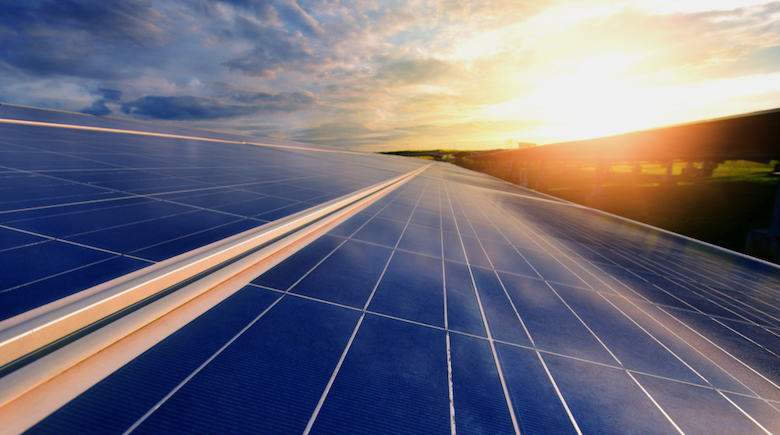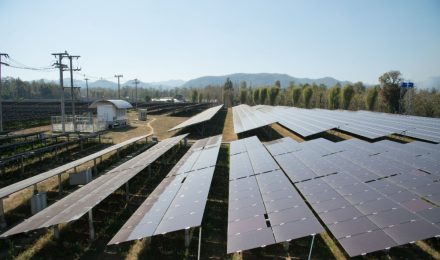Solar energy is a renewable resource that has become increasingly in-demand due to its myriad of advantages and benefits. It emits no pollution and is a clean, sustainable, and renewable source of energy. There is a lot of energy in the sun that may be converted into electricity, heat, and light, each of which has a various uses. The benefits of solar energy and the factors driving to its adoption are.
1. It is clean and renewable.
One of the key advantages is that it is a clean and renewable source of energy. Contrary to fossil fuels like coal, oil, and gas, which emit toxins and emissions into the environment, solar energy does not. Solar energy is also sustainable because it is available every day and will continue to be years to come. As a result, solar energy is more environmentally friendly than other types of electricity.
2. Lowers Price Of Electricity
Another significant benefit of solar energy is that it can help you save money on your electricity bills. Once you get solar panels installed on your home and can produce your own electricity, you will be less reliant on your electricity provider. As a result, you’ll use the grid less frequently and pay less for it over time, which can save you a ton of money. You might even be able to generate more electricity than you need in some cases, in which you might sell the surplus energy back to the grid.
3. Increases Property Value
Additionally, using solar energy could increase the value of your house. Because they provide a sustainable energy source that can reduce electricity expenses, solar panels are a desired feature for potential homeowners. Additionally, homes with solar panels are regarded as being more ecologically friendly, which is a characteristic that buyers are increasingly taking into account. Therefore, installing solar panels on your house can increase its value and appeal to buyers.
4. It Requires Minimal Maintenance
After installation, solar panels need little maintenance, so you won’t have to spend much time or money doing it. Solar panels last for 20 to 30 years and require little maintenance throughout that time. The panels just require cleaning and debris-free maintenance to remain in top working condition. Solar energy is therefore a sensible and hassle-free option for homes.
5. Creates Job Opportunities
Another main benefit of solar energy is that it creates employment opportunities for people. The solar sector is anticipated to keep expanding quickly in the years to come. There are job opportunities in a number of positions, including engineers, installers, and sales reps, due to the solar industry’s high demand for qualified individuals.
6. It Is Reliable
Solar energy is a dependable source of energy since it is not dependent on the availability of fossil fuels or other finite resources. The sun provides energy every day and will continue to do for long. This means that solar energy can provide a consistent and stable source of power even in areas that are prone to power outages or infrastructural breakdowns.
7. Enhances Grid Security
One of the key benefits of solar energy is that it is distributed, which means that it can be generated in many different locations across the country. This is in contrast to traditional power plants, which are often located far away from where the energy is needed. Due to the distributed nature of solar energy, the electrical system may become more resilient and less vulnerable to attacks or other disturbances. In the event of a power outage brought on by a natural disaster, cyberattack, or other event, the distributed nature of solar energy can help ensure that some electricity is still available in various locations, which can help to sustain important services.
Another way solar energy might improve system security is through reducing reliance on large, centralized power plants. These massive plants are regularly the target of cyber-attacks and other security issues, which can result in significant power outages. By utilizing distributed solar energy more frequently, the electrical system might become less reliant on these centralized power plants, enhancing the grid’s general security.
Additionally, during times of heavy demand, solar energy helps reduce the strain on the electrical infrastructure. When the capacity of the grid cannot keep up with the demand for electricity, which is the case in many electrical systems, blackouts may occur. By installing solar panels on homes and business buildings, solar energy can help reduce the need for electricity from the grid during peak hours, which can reduce the likelihood of blackouts.
8. Energy Production During Peak Hours
Solar energy is particularly well-suited for energy production when there is a high demand for electricity during peak hours. Peak demand frequently occurs during the day, when the sun is shining the brightest and the most electricity is being produced by solar panels, for this reason.
In order to meet the increased demand for electricity during certain times, solar energy can help. The ability to store any extra electricity produced during the day and release it when demand is at its peak is another feature of many solar panel setups. As a result, during periods of peak demand when the grid is under the most strain, solar energy can provide a more consistent and predictable source of electricity.
9. Quite Affordable.
One of the largest developments in the solar energy industry in recent years has been the decrease in the price of solar panels. Due to technology breakthroughs and increased production, solar panels are now more affordable for both consumers and companies. As a result, solar energy is currently less expensive than traditional energy sources like coal and natural gas.
The numerous government incentives and rebates provided to people and businesses who install solar panels further reduce the cost of solar energy installations. Solar energy can be made even more affordable and the installation expenses can be partially offset by offering incentives.
As solar panel prices continue to decline, it is projected that solar energy will expand even further and become more broadly accessible. This will accelerate the transition to a clean future powered by sustainable energy, reducing reliance on fossil fuels and helping to mitigate the effects of climate change.
10. Reduces Carbon Footprint
Reduce your carbon footprint by using solar electricity. By generating your electricity from solar energy, you may reduce your reliance on fossil fuels and other non-renewable energy sources that contribute to the hazardous greenhouse gas emissions in the environment. By doing so, you can reduce your carbon footprint and contribute to the effort to stop global warming. Additionally, several governments offer incentives and refunds to homeowners.
To summarize, the advantages of solar energy are a lot. This resource provides a myriad of benefits, such as financial and environmental gains among others. The installation process involves incorporating panels onto structures that serve industrial, commercial or residential purposes to generate power while reducing costs in the long run despite upfront expenses incurred initially. Essentially altering how we produce and consume energy efficiently could be possible through effective utilization of this renewable source with significant potential for improved sustainability and resilience going forward into the future ahead.



